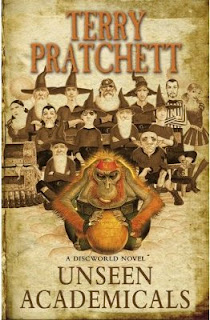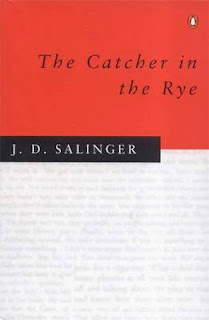On the Oregon Trail (via Newark)

As I was saying before I rudely interrupted myself several times: I visited America for the first time ever in November, with two free days to explore the city of Portland. You could argue this is not sufficient to draw deep and general conclusions about American life, but that won't stop me trying.
The first thing that struck me about Portland was how big the hotel we were staying in was. I was on the 12th floor, which was less than halfway up the building, and there was another tower of a similar size across the street. My hotel room was also insanely huge, and I'll leave the TV set to your imagination.
The second thing that struck me was how nice the beer in the hotel bar was.
Describing everything in America as bigger is of course a tired old cliché, and not really true either as there's a hotel that's just as high in Manchester. But there was a definite sense of bigness about the city in general which I think is caused by it being oddly spread out. The city centre of Portland is a small area, but it feels diffuse. There really is space to park your gigantic car next to the shop you're going to, just like in American TV shows. I think it also helped that there was hardly anyone walking the streets (except for a distressingly large number of homeless people).
No doubt I would have got a similar experience from walking around any American city, though perhaps with a greater likelihood of being shot. But throughout this time Portland itself was also showing through, giving me a weird sensation of being in two different places at once.
The beer is the most obvious sign that something is different about Portland. While the likes of Budweiser work hard to make American beer the laughing-stock of the world, the independent brewers of Oregon are quietly providing the antidote. There are 28 breweries in the city alone (more than Cologne!). Pretty much any beer you try will be excellent but I can especially recommend the Mirror Pond Pale Ale.
Daytime vices are also well served, thanks to Portland's coffeehouse culture (second only to Seattle's, so I'm told). I spent a happy hour in Sip and Kranz tasting Stumptown coffee and voodoo doughnuts while reading lefty opinion pieces in The Oregonian. The first refill's free...
I think it was on about my third beer that I realised that God had taken everything that was good about America and gathered it together in Portland. Perhaps it helped that we travelled to the bar for free on Portland's excellent tram system. Or that I'd had an amazing Mexican meal for lunch. Or that the bar was hosting live indie music all night. Or that I'd finally seen the point of cupcakes thanks to the local artisan baker. Or maybe it was because a kindly corporation was paying for the reception. Who's to say? But then my only experience of the rest of the country is Newark International Airport, and anywhere will seem like the promised land after that.
The best discovery of all, and proof that sometimes big is beautiful, is Powell's City of Books.
 Powell's takes up the entire city block that you can see in this photo. It claims to hold over a million new and used books (not including the technical bookshop down the road). I spent the better part of a day browsing, partly just thinking of obscure books and finding out that yes, they did stock them.
Powell's takes up the entire city block that you can see in this photo. It claims to hold over a million new and used books (not including the technical bookshop down the road). I spent the better part of a day browsing, partly just thinking of obscure books and finding out that yes, they did stock them.Sadly my hold luggage was limited, so I wanted to find the one book in the million that epitomised life in Oregon. I sneaked back to the hotel internet to find out what it was, and came back with a mission to find Sometimes a Great Notion by Ken Kesey. Powell's had three different editions to choose from.
Notion has nothing to do with Portland, except insofar as it's the big city that bad news comes from. It's about life in the country, where there is still money to be made from bringing down trees. It's the Oregon that I never saw because I was too busy sipping coffee (maybe next time...)
The book follows the fortunes of the Stamper family as they stubbornly try to fulfill a logging contract while the rest of the town is on strike. The main characters are the macho Hank Stamper and his bookish brother Leland. They're both very well-written with distinctive voices, but not to the point of being stereotypical. Hank's internal monologue in particular is perfectly nuanced.
Kesey employs an unusual technique of switching between omniscient narration and 1st person voices (mainly Hank and Leland) without announcing that he's done so. Sometimes this happens in the middle of a paragraph, so the same events are seen from multiple viewpoints. It sounds intimidating but it's actually very effective, and not hard to follow. It's a tribute to Kesey's writing that the voices are so instantly distinguishable.
Most of the other characters are also well-drawn, with even the incidental ones given room to breathe. However, the female characters are very thin compared to the men. This is to some extent understandable in such a male-dominated environment, but even Viv, a central character, is weak compared to the brothers fighting over her.
The story is an epic struggle with many powerful moments. The plot never puts a foot wrong from start to finish. But the writing itself is the main attraction, particularly in the descriptions of the outdoors, which verge on poetic.
So why did it take so long to read?
The problem is the sheer bigness of the book. Each individual paragraph is exquisite, but the whole is too much. It reminds me of our last night in Portland, when we went to Henry's and I had one of the most delicious burgers I've ever tasted. Unfortunately we'd been stupid enough to order starters beforehand, and everything was served on a massive scale. The feeling I had while attempting to eat the burger was much the same as I experienced about a third of the way through this book.
In many respects it's the closest thing I've read yet to the Great American Novel.
Sometimes a Great Notion by Ken Kesey
First published 1964



Comments
Post a Comment